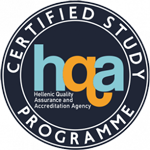- Home
- jDepartment
- jPersonnel
- jEducation
- jUndergraduate Studies
- jCurriculum
- 1st Semester Courses
- 2nd Semester Courses
- 3rd Semester Courses
- 4th Semester Courses
- 5th Semester Courses
- 6th Semester Courses
- 7th Semester Courses
- 8th Semester Courses
- Fall Semester Elective Courses - Core Electives
- Fall Semester Elective Courses - Management and HRM Concentration Electives
- Fall Semester Elective Courses - Accounting and Finance Concentration Electives
- Fall Semester Elective Courses - Marketing and Production Concentration Electives
- Fall Semester Elective Courses - Free Electives
- Spring Semester Elective Courses - Core Electives
- Spring Semester Elective Courses - Management and HRM Concentration Electives
- Spring Semester Elective Courses - Accounting and Finance Concentration Electives
- Spring Semester Elective Courses - Marketing and Production Concentration Electives
- Spring Semester Elective Courses - Free Electives
- Old Curriculum
- Student Handbook
- Course Schedule
- Academic Calendar
- Exams Schedule
- Undergraduate Studies Regulation
- Academic Textbooks
- Student Services
- Erasmus+
- Internships
- Academic Advisors
- jCurriculum
- jPostgraduate Studies
- Master in Business Administration
- Master in Business Administration – Total Quality Management International
- Master in Business Administration – Tourism Management
- Executive Master in Business Administration
- MSc in Accounting and Control of Businesses and Public Sector
- MSc in Law and Economics
- Master of Arts in Local and Regional Development and Local Goverment
- jMaster in Business Administration in Sustainability
- jPhD Studies
- jUndergraduate Studies
- jResearch
- jCareer
- jNews
- Contact




